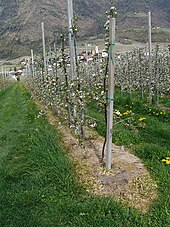

|
Popular Beer and Wine Brands Contaminated With Monsanto's Weedkiller
 [EcoWatch] The past few years have revealed some disturbing news for the alcohol industry. In 2015, CBS news broke the announcement of a lawsuit against 31 brands of wines for high levels of inorganic arsenic. In 2016, beer testing in Germany also revealed residues of glyphosate in every single sample tested, even independent beers. [EcoWatch] The past few years have revealed some disturbing news for the alcohol industry. In 2015, CBS news broke the announcement of a lawsuit against 31 brands of wines for high levels of inorganic arsenic. In 2016, beer testing in Germany also revealed residues of glyphosate in every single sample tested, even independent beers.Heavenly sunlight being provided through a crack in the cloud cover. Nothing more. Moms Across America released test results of 12 California wines that were all found to be positive for glyphosate in 2016. We tested further and released new findings last week of glyphosate in all of the most popular brands of wines in the world, the majority of which are from the U.S. and in batch test results in American beer. What do these events all have in common? Monsanto's Roundup. French molecular biologist Gilles-Éric Séralini released shocking findings in January of 2018 that of all the Roundup products they tested, over a dozen had high levels of arsenic—over five times the allowable limit along with dangerous levels of heavy metals. Roundup is commonly sprayed in vineyards to keep the rows looking tidy and free of so-called weeds and on grain crops (used in beer) as a drying agent just before harvest. Glyphosate herbicides do not dry, wash or cook off and they have been proven to be neurotoxic, carcinogenic, endocrine disruptors and a cause of liver disease at very low levels. The wine brands tested included Gallo, Beringer, Mondavi, Barefoot and Sutter Home. Beer brands tested included Budweiser, Busch, Coors, Michelob, Miller Lite, Sam Adams, Samuel Smith, Peak Organic and Sierra Nevada. Some of the test results were at first confusing. One would expect the organic wines and beers, and the carefully crafted independent beer brands to be free of glyphosate, as the herbicides are not allowed or used in organic farming. Instead, it appears that they are contaminated. Previous testing did show that some organic wines were contaminated, and in this round, one of the organic brands was as low as 0.38 ppb, but conventional wines had glyphosate residues 61 times higher, at 23.30 ppb. Studies have shown only 1 part per trillion to stimulate the growth of breast cancer cells, so any amount is concerning. Posted by: Skidmark 2018-03-30 |
| http://www.rantburg.com/poparticle.php?ID=511221 |